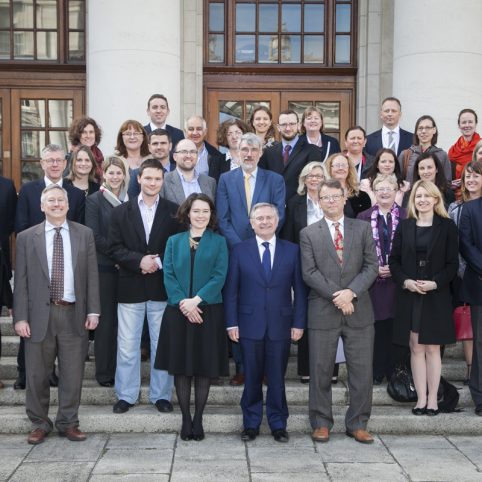The European Haemophilia Consortium (EHC) works closely with key European and international partners, including other patients’ groups and medical associations.
Since its inception, the EHC has maintained formal links with the World Federation of Hemophilia (WFH). The WFH is an international organisation representing the interests of people with rare bleeding disorders from 101 countries, including Europe. The WFH recognises the EHC as a separate organisation and observer to its General Assembly. The two organisations signed a Memorandum of Understanding (MOU) in 2004 to enhance their collaboration in European countries. This MoU was revised in 2013. To maintain open communications, the WFH President is an ex-officio member of the EHC Steering Committee. In turn, the EHC President is an ex-officio member of the WFH Executive Board.
The EHC works closely with the European Association for Haemophilia and Allied Disorders (EAHAD). EAHAD is a multidisciplinary association of healthcare professionals who provide care for individuals with haemophilia and other bleeding disorders. Both organisations signed an MOU in 2013.
The EHC is a member organisation of the European Organisation for Rare Diseases (EURORDIS), the Platform of Plasma Protein Users (PLUS) and the European Patients Forum (EPF).
EURORDIS is a non-governmental alliance of rare disease patient organisations representing over 4,000 rare diseases and 606 patients’ organisations in 56 countries.
EPF is an umbrella organisation that works with patients’ groups in public health and health advocacy across Europe. Its members represent specific chronic disease groups at EU level or are national coalitions of patients.
PLUS is an alliance of patients’ organisations relying fully or in part on plasma protein based therapies. In addition to the EHC, PLUS is composed of the International Patients Organisation for Primary Immunodeficiency (IPOPI), the WFH, Alfa Europe, Idiopathic Thrombocytopenic Purpura Support Organisation (ITP), Hereditary Angioedema International (HAEI), and Guillain-Barre Syndrome Foundation International (GBS/CIDP).
